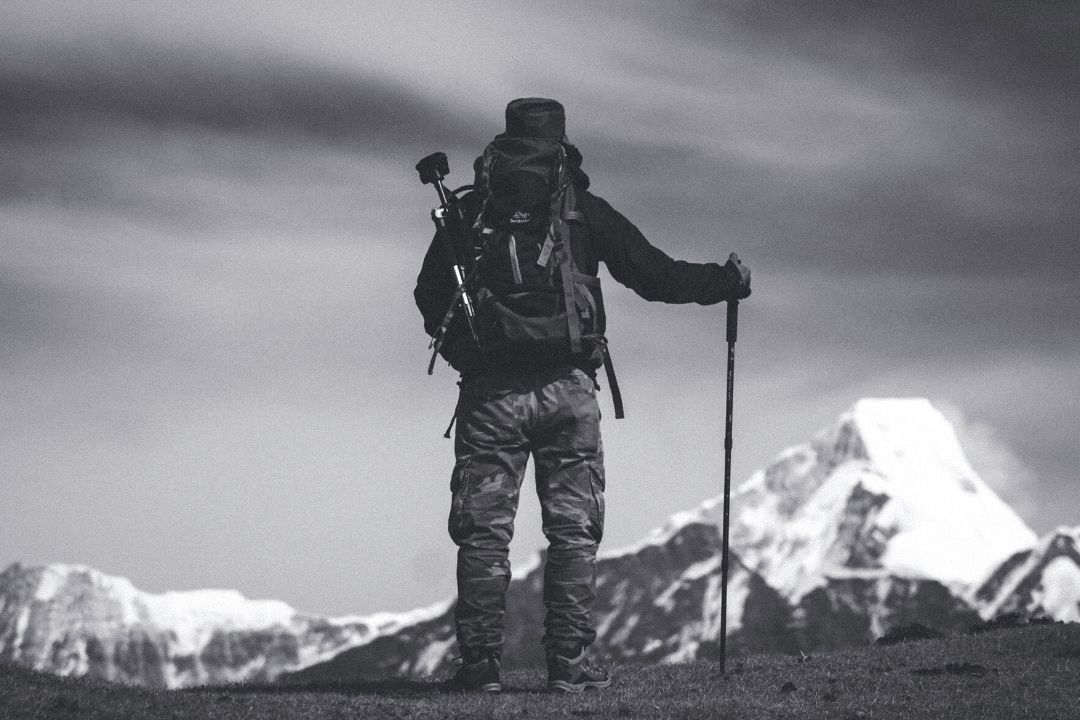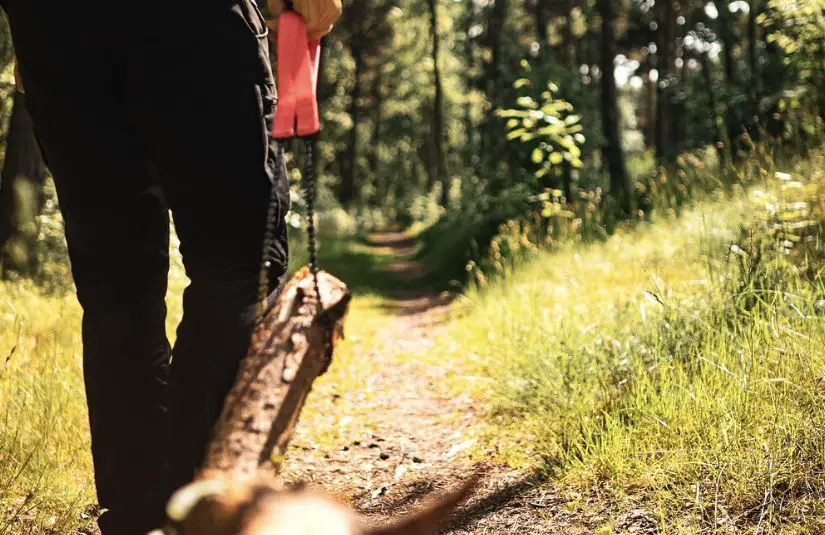Get Hunting-Ready: When Should a Hunter Begin to Get in Shape for a Hunt
Are you preparing for your next hunting season? It's never too early to start getting in shape. In this blog post, we'll discuss the importance of physical fitness for hunting and provide tips on when to begin your training regimen.
Although hunting has become a pastime rather than an activity of necessity, the physical strain it places on your mind and body remains unchanged. Hunting requires strength, endurance, and perseverance - regardless of its role in our lives today.
And as a hunter, being in good physical shape is essential for a successful and enjoyable hunt. It can help you stay alert and focused, allowing you to make the most of your time in the field. But when should you start getting in shape for a hunt? The answer may not be as straightforward as you think.
In this article, we will explore the factors to consider when determining when to start getting in shape for a hunt and provide some general guidelines to follow. Whether you are a seasoned hunter or new to the sport, this information can help you be physically prepared for your next hunt.
What kind of physical shape should a hunter be in before a hunt?
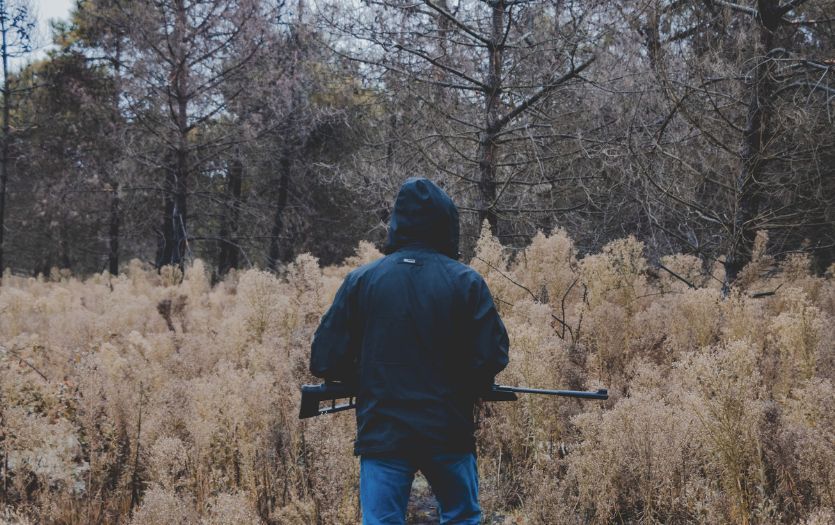
The physical shape a hunter should be in before a hunt depends on the specific demands of the hunt. In general, however, it's important for hunters to have good cardiovascular endurance, strength, and flexibility.
Cardiovascular endurance is important because a hunting trip often involves hiking long distances over rough terrain, sometimes carrying a heavy pack through your hunting area. To build cardiovascular endurance, you might focus on exercises like running, cycling, or swimming.
Strength is also important for hunting, as it can help you carry heavy gear and handle your hunting equipment with ease. To build strength, you might focus on exercises like weight lifting or bodyweight exercises like push-ups, squats, and lunges.
Flexibility is also important for hunting, as it can help you navigate rough terrain and get into position to make a shot. To improve flexibility, you might focus on stretches and yoga poses.
Finally, it is important to have strong lung capacity to increase endurance and improve your turkey hunting skills, especially if you enjoy using turkey mouth calls.
But before you start your journey and reach your desired fitness level, there are steps you can take to make sure you're on track and lay out your hunting plan accordingly.
Also, check out our article on the Best Turkey Calls
Identify the type of Hunt you are Participating in
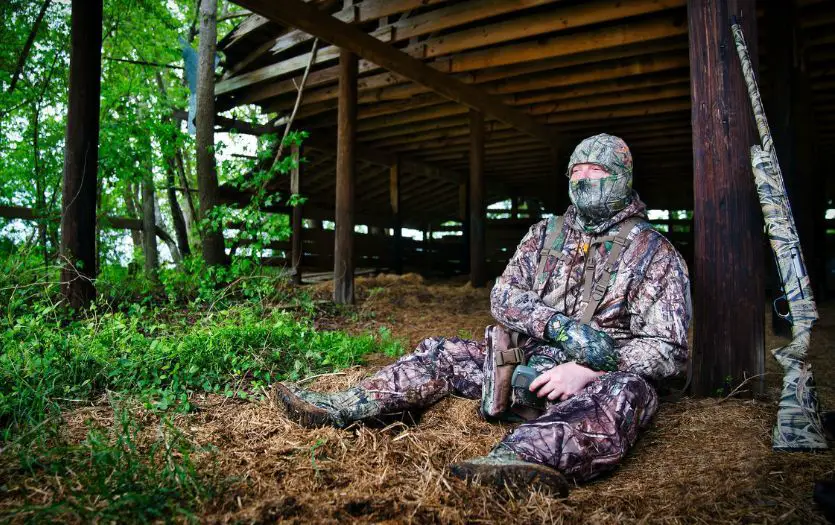
Before you embark on a hunt, first it's important to identify the type of hunt you are participating in and gauge the physical demands it will place on your body. This will help you determine how much physical preparation is necessary and give you the best chance of having a successful and enjoyable hunt.
To do this, ask yourself the following questions:
- What type of hunting will you be doing? Will you be hiking and climbing through rough terrain, or will you be driving a boat or sitting in a ground blind? Do you plan on setting up tree stands for hunting? The type of hunting you will be doing can have a big impact on the physical demands it will place on your body.
- How long will the hunt last? A longer hunt will generally require more physical preparation, as you will need to be in good shape to handle the extended physical demands.
- What is the terrain like? Study the topographic map of your hunting grounds, if you will be hunting in a hilly or mountainous area, you will need to be in good physical condition to handle the added demands of climbing and navigating rough terrain.
- How will you be getting to and from your hunting location? If you will be driving or flying, the physical demands may be lower compared to a hunt that requires you to hike in.
By answering these questions, you can get a better sense of the physical demands of your hunt and start preparing your body accordingly. This may include increasing your activity level, focusing on functional fitness, and incorporating strength training into your routine. By taking the time to prepare your body, you can be confident that you are physically ready for your hunt.
Don't miss out on our beginner-friendly guide to turkey hunting
Set realistic fitness goals that prepare you for the hunt

When considering the hunt, it is important to set realistic fitness goals that will adequately prepare you for the physical and mental strain of the adventure. This means understanding what type of hunt you are embarking on, your current fitness level, and creating a plan to improve and reach the desired skill level.
Before setting any workout plans or goals, it is important to consult a doctor and make sure you are physically capable of the hunt. With your doctor’s approval and knowledge of your current fitness level, create an achievable plan to reach your desired goal.
It should include aerobic exercises such as running, cycling, or swimming; strength training with weights or bodyweight exercises, as well as flexibility exercises like yoga or stretching. As you progress, adjust the plan to challenge your body and keep up with your goals.
To prepare yourself mentally, create a few realistic goals that are measurable and achievable. This could be completing a 5K in four weeks, increasing the distance of your runs or hikes within a certain time frame, or building enough strength to carry a 40-pound pack up a hill. The key is to create short-term goals that you can focus on and use to measure your progress as you prepare for the hunt.
By setting achievable fitness goals, and tracking them regularly, you can ensure that you are ready physically and mentally for the hunt
Research types of exercise that can help you meet your fitness objectives
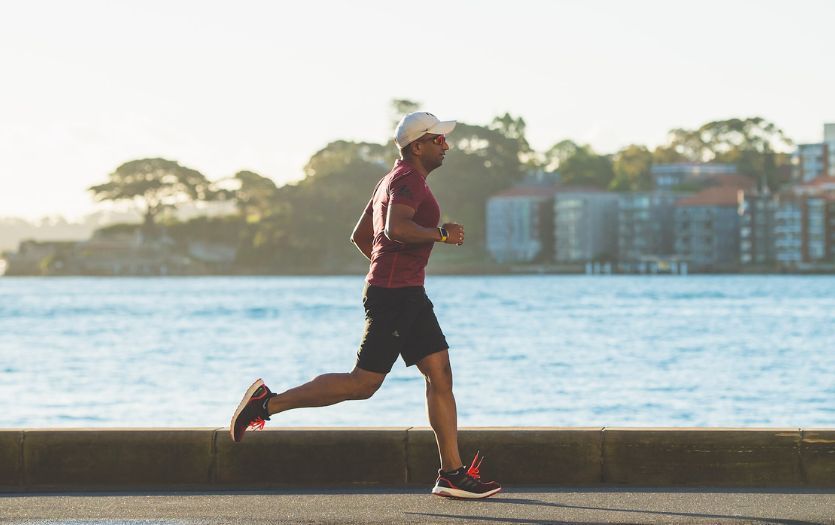
The best way to prepare for a successful hunt is to begin conditioning your body and mind several weeks or months prior. As you work towards your hunting fitness goals, be sure to research types of exercise that can help you meet those objectives.
- Start by doing aerobic exercises like running, swimming, or biking to build endurance and increase your stamina, which will help you to stalk your game without tiring you out.
- Additionally, practice focusing on breathing techniques so that you can remain calm and alert in the field, this is most important if you are hunting from a boat or any hunting chair or other seated positions.
- Include strength training to build muscle and improve carrying capacity, which is especially important if you are into big game hunting.
- Include yoga, plyometric movements, and flexibility training to improve your range of motion.
It's also important to familiarize yourself with the terrain of the area where you will be hunting, as this can help you identify potential dangers and plan for safe and ethical hunting routes. Finally, practice shooting with your weapon of choice so that you can become comfortable and confident with its operation before heading out.
Not only will this make your trip more enjoyable, but it will also increase your chances of success in the field. So start planning and training now, and you'll be ready for whatever your hunting trip throws your way.
Ensure adequate rest and nutrition to support your physical training program
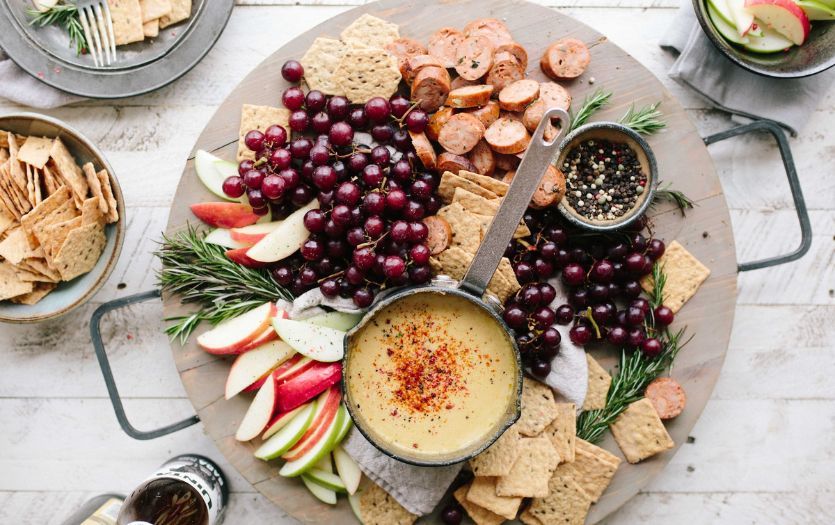
Getting enough rest and nutrition is essential to any physical training program. When you're working out, your body is expending a lot of energy and all that work needs fuel to keep going. If you don't give your body the proper fuel through adequate rest and nutrition, you won't be able to perform at your best.
When it comes to rest, aim for 7-9 hours of sleep per night. This will help your body recover from workouts and give you the energy you need for the next day.
To prepare for a successful hunting trip, it’s also important to make sure that you’re getting the right nutrition. A few simple dietary adjustments can help boost your energy levels, so you have the endurance necessary for a successful hunt.
Here are some tips:
1. Increase your intake of carbohydrates and healthy fats like avocados, nuts, olive oil, and salmon. These foods provide long-lasting energy without feeling weighed down.
2. Consume adequate amounts of protein for strong muscles and plenty of energy. Lean meats like chicken and fish are ideal options.
3. Drink plenty of water throughout the day to stay hydrated and energized in the woods. Bring along some sports drinks or nutrition bars with electrolytes if you plan on being away from civilization for extended periods of time.
So don’t forget to dedicate time to taking care of your body before you set out for that grueling hunting trip!
Also, check out our article on the Best Camping Chairs for Bad Backs
What about mental preparations?

Mental preparation is essential for a successful hunt. Before heading out, it is useful to set a clear goal or intention for the hunt and visualize the outcome.
Additionally, it is important to practice focusing on breathing techniques so that you can remain calm and alert in the field. Be sure to take breaks throughout your hunt to relax, and avoid letting frustration or stress affect your focus or decision-making.
Finally, remind yourself of the ethical considerations associated with hunting so that you make decisions with respect for wildlife, nature, and fellow hunters.
Also, check out our article on the Best Ice Fishing Gloves
What Can You Do to Ensure You Will Be In Good Physical Shape for Different Types of Hunting?
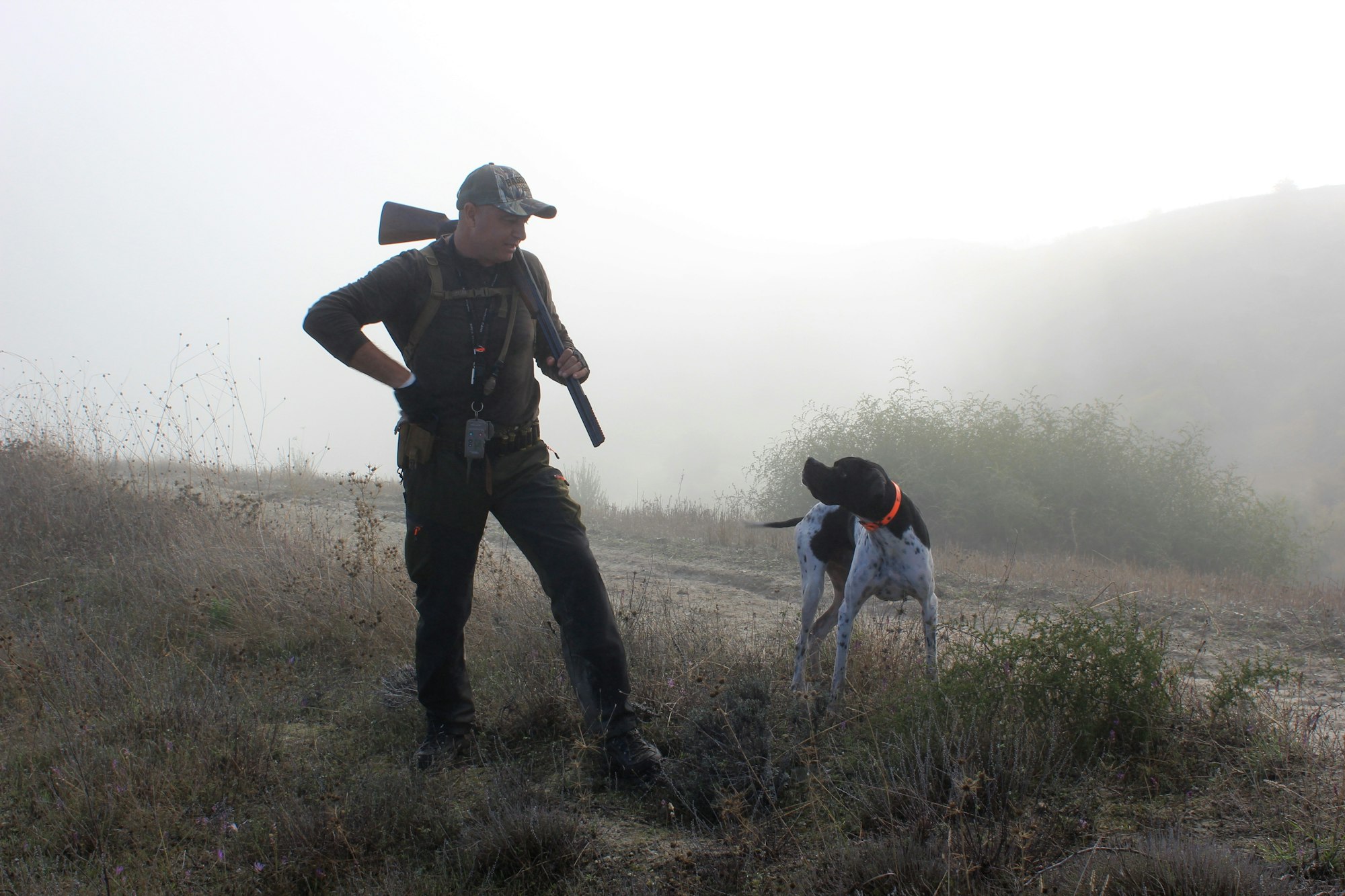
To be adequately prepared for a hunting trip, you must become familiar with the exact demands of your hunt weeks in advance. Start at least 12 to 15 weeks prior to your trip for adequate physical and mental preparation.
Start with basic cardio and aerobic exercises that will condition your body depending on what type of hunting you are doing and gradually increase intensity as the date approaches.
Bow Hunting:
Bow hunting requires upper body strength and excellent hand-eye coordination. You will be holding the bow for long periods of time, so it's important to work on building up your arm, shoulder, and back muscles.
Exercises such as push-ups, pull-ups, and bicep curls can help with this. In addition, practicing archery will also help you hone your hand-eye coordination and build the muscles in your arms, back, and shoulders.
Rifle Hunting:
Rifle hunting needs greater leg power than bowhunting since you require to be able to shoot precisely while standing up, sitting down, or laying on the ground. To get ready for rifle hunting season, concentrate on workouts that improve overall endurance and stability such as squats, lunges, and balance ball exercises.
Crossbow Hunting:
Similar to rifle hunting in terms of physical requirements, crossbow hunting requires more upper body strength due to the heavier and oddly shaped equipment.
To develop your muscles for this purpose, you should perform exercises such as bench presses, tricep extensions, lateral raises, and similar strengthening activities regularly.
Let's take a closer look at the specific requirement for different hunting scenarios:
Big Game Hunting:
Big game hunters should focus on cardiovascular exercise, strength training, endurance, and flexibility exercises to improve their performance on the hunt. Cardiovascular exercises such as running or biking are important for improving stamina and endurance for long treks in the wilderness.
Strength training with weights or bodyweight exercises will help build muscle to carry heavy gear and weapons for extended periods of time. Endurance exercises like sled pulls or stair climbing will help build up your muscles to stay strong throughout a hunt. Finally, flexibility exercises like yoga or stretching can help prevent injuries while hunting and tracking prey.
Additionally, stress-management techniques such as meditation or deep breathing can also be beneficial for hunters looking to stay focused and alert during their hunts. With the right physical training program tailored to the demands of hunting, deer hunters or any other big game hunters can ensure they are at peak performance before embarking on their next hunt.
Turkey Hunting:
Turkey hunting is a physically demanding activity that requires strength, agility, and endurance. To prepare for a successful hunt, it's important to have a fitness routine that focuses on building core strength and improving cardiovascular health.
Burpees and bear crawls are excellent exercises for this purpose as they target multiple muscle groups at once and can be done anywhere with minimal equipment. Other exercises such as squats, lunges, planks, and push-ups will also help build the necessary strength and endurance needed for turkey hunting.
Additionally, incorporating aerobic activities like running or biking into your routine will help improve your cardiovascular health and give you the energy you need to stay active throughout the hunt. Another requirement of turkey hunting is excellent lung capacity which will help you master different turkey calling techniques without any discomfort.
With the right combination of exercises, you'll be ready to take on any turkey hunting challenge!
Also, find out why weight loss is imperative for hunting.
Duck Hunting:
Duck hunting requires a lot of upper-body strength and endurance. You will be paddling and hunting from a boat, carrying decoys, and shooting a shotgun, so it's important to work on your arm, shoulder, and back muscles.
Exercises such as rowing machines, dumbbell flying extensions, and pull-ups can help you build up the strength and endurance you need for duck hunting.
Check this helpful video for an ideal workout for backcountry hunters:
Finally, When Should a Hunter Begin to Get in Shape for a Hunt?
Hunting is a complex activity that requires both physical and mental preparation, and you need to plan ahead and start with at least 12 to 15 weeks of time left for your trip. No matter when you choose to begin preparing for a hunt, it is important to have a thorough understanding of the physical demands associated with hunting.
Getting in shape and being fit for hunting is in fact an integral part of most hunter education programs, so you should not neglect them either.
Start by familiarizing yourself with the terrain that you'll be hunting and its temperatures, humidity, and other environmental factors. Additionally, build endurance and increase your stamina in the field. And don't forget to get enough rest and nutrition for energy on those long days out in nature.
With adequate preparation under your belt - it's time to start planning for an incredible adventure ahead! And if you love the thrill of hunting, tap the button below and check out some of the best gear that you should get for your hunting trips from our top picks.
If you want to prepare and build a better plan for your hunting trip, also check out some of our other articles:
Also, check out some of our other articles:
